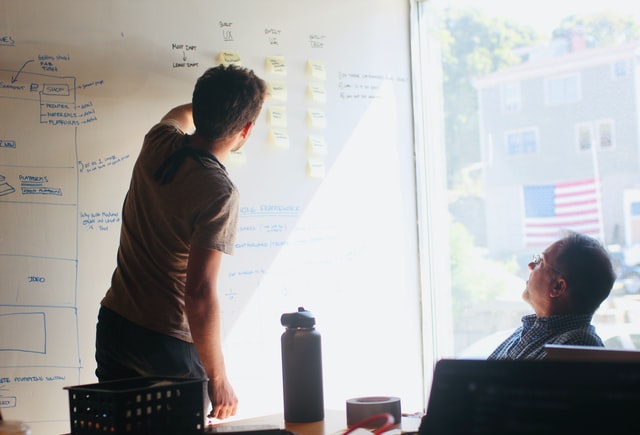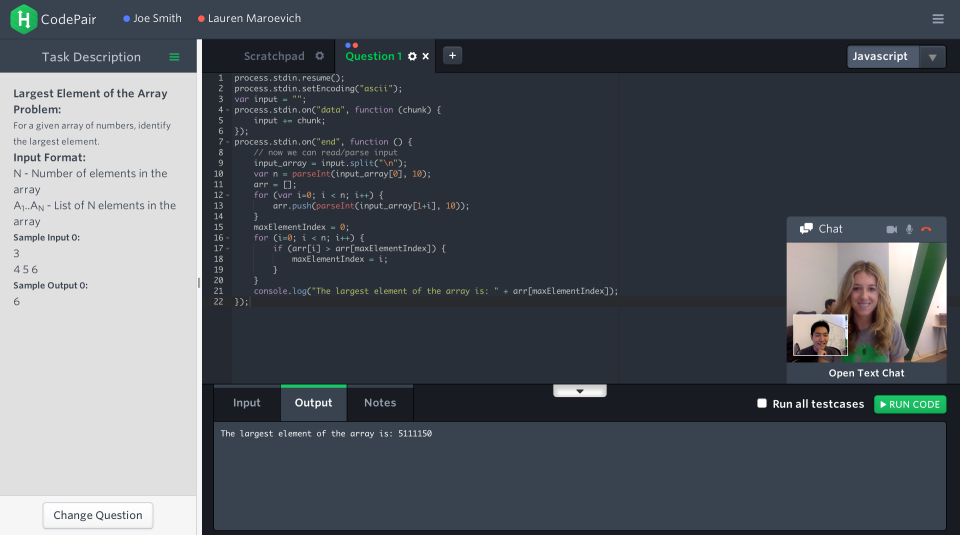3 Ways Covid Has Changed the Tech Job Search
If you’ve put off exploring a new career opportunity during the Covid-19 pandemic, you’re not alone. Even as the world starts to get vaccinated and things look like they’re on the up and up, there always seems to be a setback (hint: Delta variant) along the way.
Having been through the job search process twice in the last two years - I joined a travel startup 😭 before the pandemic and then recently returned back to a big tech company - let me start by assuring you things aren’t quite as bad as they seem.
Yes, there’s still lots of uncertainty and you do still need to grind Leetcode to prep for FAANG coding interviews, but even so, the pandemic has actually made the job search process more accessible than ever before.
Here are three ways Covid has changed things:
1. The cool companies have changed
From forums on Leetcode to things like Blind or even your college dorm, it seems like everyone wants to join FAANG. And that makes sense.
They pay exceptionally well, have lots of stability and offer the opportunity to learn how to do things the “right way” (or at least learn industry best practices).
Covid hasn’t changed that. If anything, FAANG companies are in even more demand during the pandemic than before because they represent stability in a time of uncertainty. Plus their stocks are at all time highs.
What has changed is the hot list of non-FAANG companies to join.
Pre-pandemic, you could have hedged your bets with some stability plus the chance of a 2x or 3x multiple on your compensation by joining companies that were just pre or post IPO. Think Uber, Lyft and Airbnb.
Covid has definitely changed that. Industries like travel got wrecked and just a few months into the pandemic in mid 2020, companies had hiring freezes, layoffs, and were just generally preparing for the worst.
Somewhat counter-intuitively (probably because of low interest rates and boredom), the stock market soared, and literally everyone and their mother was raising money at huge valuations.
Trigger the gold rush.
Engineers were fighting over themselves to get into companies just before the new round of fundraising or because of rumors of an imminent IPO. Now everyone knows about companies like Figma, Plaid, Brex, and Robinhood.
To see how things might play out if you pick the right next company, let’s consider DoorDash which soared as a result of customer demand during Covid.
If you had joined DoorDash in early 2020 just before the pandemic as a Senior Engineer you would have earned 190k base + 100k stock = 290k/year at around a 13B valuation. At the time of writing this in mid 2021, DoorDash’s market cap is ~75.15B which is a multiple of 5.7x. Our friendly senior software engineer is now earning 190k base + 5.7 * 100k = 760k.
The moral of the story? There are still plenty of winners and losers in this pandemic. Outside of FAANG, the next company you pick could be a winning lottery ticket or… a ticket to the unemployment office.
2. Remote means you can interview with more companies
Pre-pandemic, you’d apply to maybe 5 to 10 companies, and only follow through 2 or 3 to the final rounds.
Preparing for interviews takes time and final-round interviews almost always involved flying out to a a company’s office, taking a day of “vacation” from your day job, and then going through the gauntlet of 5 or more interviews. A final round onsite was typically a multiple day commitment.
With the move to remote work during the pandemic, companies are now hyper-distributed and working across multiple timezones which means it’s much easier to fit interviews into your schedule.

Want to do a phone screen at 8am before your day-job? How about split up your onsite over two days so you’re not exhausted by interview 3? Just ask.
I was surprised by the flexibility of companies during my most recent job search.
Partly they want to accommodate candidates and all the craziness Covid has caused, partly it’s a logistical nightmare on their end too - how do you get a team to interview a candidate when the team is based in three timezones?
Whichever it is, it is so much easier to interview than before. Also, with companies now hiring remotely, there are even more opportunities to consider than before. Get out there!
3. There’s no longer a physical whiteboard
For some reason, pre-pandemic final-round software engineering interviews always involved a whiteboard.

If it was a coding interview, you’d need to remember how to hold a marker, scribble some stuff, and then hand-step through your code. Fun.
And for system design interviews, it’d be lots of boxes and arrows as you tried to lay out how to build the next Facebook in the short span of 45 minutes.
With Covid, nearly all interviews are conducted remotely and that means no more physical whiteboard.
For coding, that means using the same process as the phone screens during the final rounds and using collaborative coding platforms like HackerRank.

One downside of this is that there’s nowhere to hide. In the past, you could write things on the board and depending on how convincing your explanation was (and maybe the quality of your handwriting), your interviewer might overlook syntax errors or just assume things worked.
These days, you better be able to write code that runs and which passes the tests (either provided by the interviewer or you).
Where things really get interesting is the system design interviews. These were never conducted remotely because it’s hard to draw things on a virtual whiteboard. Great.
Now, recruiters will send you a link to a diagramming platform like Miro or Google Jamboard, or have you use HackerRank’s whiteboard functionality.
Bad news? Most of them suck. Miro doesn’t even show your collaborators what you’re typing until you click out of the box.
Good news? Most companies are open to you choosing your platform of choice (I like Google Draw) and then just sharing your screen. One company even said I could use a physical whiteboard and point my webcam at it if it was easier.
Now what?
Are things still uncertain? Yep.
Has the job search process changed? 100%.
Is that necessarily a bad thing? Not so much.
There’s more uncertainty and you’ll want to pick a company that fits your risk profile, but things aren’t all bad. You can now interview more easily than ever before and as long as you invest the time to get comfortable writing syntactically correct code and learning the ins-and-outs of your favorite whiteboarding platform, you’re good.
At the end of the day, tech is still recruiting like crazy and still pays far too much money (more on that another time).
Go forth and interview.